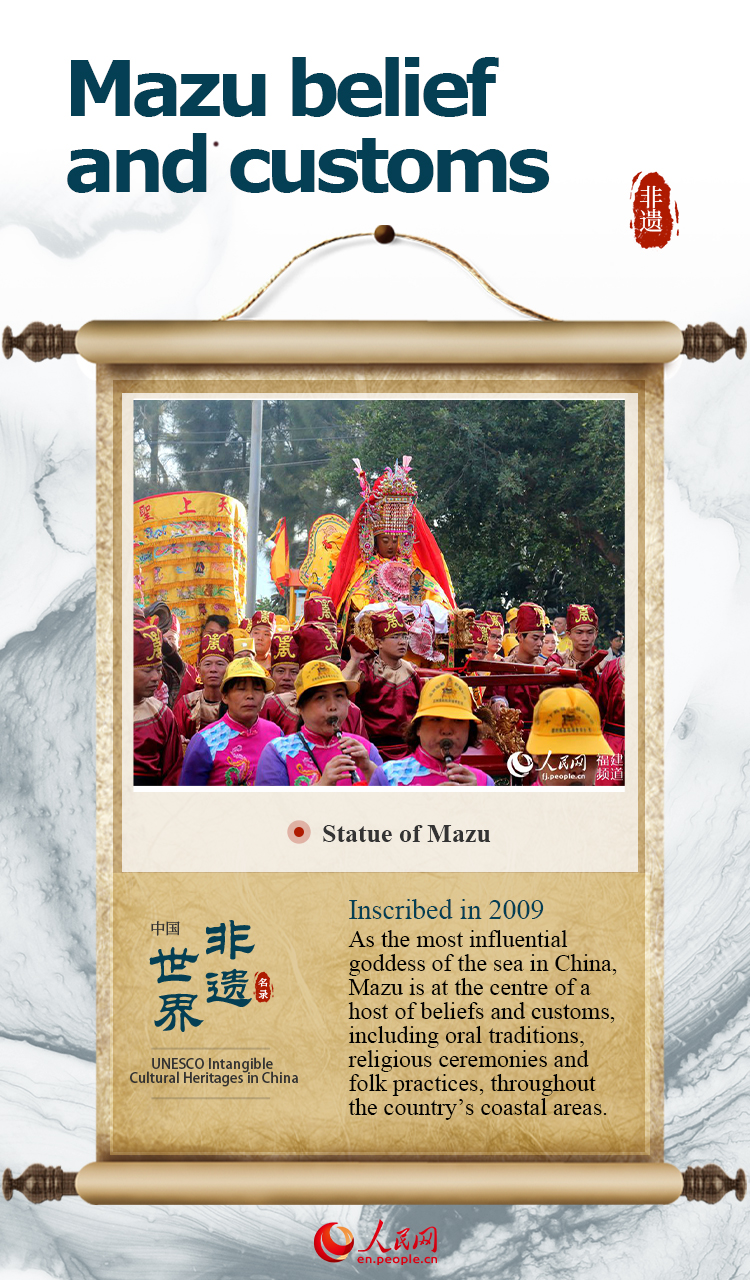UNESCO's Intangible Cultural Heritages in China (Ⅳ) (4)
Mazu belief and customs
The item, "Mazu belief and customs" was inscribed on UNESCO's Representative List of the Intangible Cultural Heritage of Humanity in 2009.
As the most influential goddess of the sea in China, Mazu is at the centre of a host of beliefs and customs, including oral traditions, religious ceremonies and folk practices, throughout the country's coastal areas.
Mazu is believed to have lived in the tenth century on Meizhou Island, where she dedicated herself to helping her fellow townspeople, and died attempting to rescue the survivors of a shipwreck.
Local residents built a temple in her honour and began to venerate her as a goddess. She is celebrated twice each year in formal temple fairs, when Meizhou residents, farmers and fisherfolk temporarily suspend their work to sacrifice marine animals, venerate statues of Mazu and enjoy a variety of dances and other performances.
 |  |
Photos
Related Stories
- Chicago Field Museum hosts Chinese Culture Day
- UNESCO's Intangible Cultural Heritages in China (Ⅲ)
- Feature: Chinese classical music resonates in ancient Swiss city
- Chinese culture exhibition held in Paris
- How China helps preserve cultural heritage sites in Asia
- Museum in NW China's Gansu uses latte art to give more people a taste of culture
- Chinese culture courses launched in Myanmar's Yangon
- Sound of replicas of Chime Bells of Marquis Yi of Zeng digitally preserved
- China encourages integrating intangible cultural heritage, tourism
- Digital technologies help revitalize ancient city wall in NW China
Copyright © 2023 People's Daily Online. All Rights Reserved.










